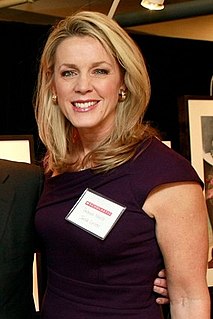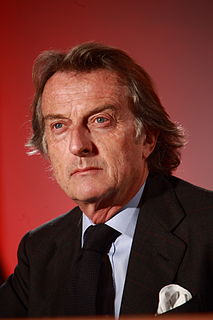A Quote by Deborah Norville
Certainly the research shows that grateful people are more innovative thinkers.
Related Quotes
A great thinker once described innovative thinkers this way: "Some men see things as they are and say, 'Why?' I dream of things that never were and say, 'Why not?'" Innovative thinkers are constantly asking questions such as these. How can we improve recruiting, hiring and training. How can be add greater value to our products and services by making them even better? How can we do more to nourish the personal as well as professional development of our people? What more can we do as a good citizen where we do business?
Competition has never been more threatening than it is now. Innovative thinkers challenge the status quo in their organizations. They are often viewed as "troublemakers." They threaten the defenders of the status quo. So competition within an organization can also be brutal. The most effective leaders overcome "the ideology of comfort and the tyranny of custom" by being change agents themselves. They encourage and reward innovative thinking. I have observed that people only resist changes imposed on them by other people.
That which you have received, you should be grateful for it. And the most beautiful phenomenon is that when you are grateful, existence starts pouring more and more over you. It becomes a circle: the more you get, the more you become grateful; the more you become grateful, the more you get... And there is no end to it, it is an infinite process.
I think there's a need for somewhat of a mindset change. We need to have a consistent external focus. We've always had the research labs. We've always had the resources to be innovative, and we've been innovative in a number of businesses. But, in any big company, you have to constantly push people to look at markets and customers, rather than look internally at themselves.
The question is grateful to who? You would think grateful to Allah, but Allah didn’t mention Himself. So it could be grateful to Allah, grateful to your parents, grateful to your teachers, grateful for your health, grateful to friends. Grateful to anyone who’s done anything for you. Grateful to your employer for giving you a job. Appreciative. Grateful is not just an act of saying Alhamdulilah. Grateful is an attitude, it’s a lifestyle, it’s a way of thinking. You’re constantly grateful.
































